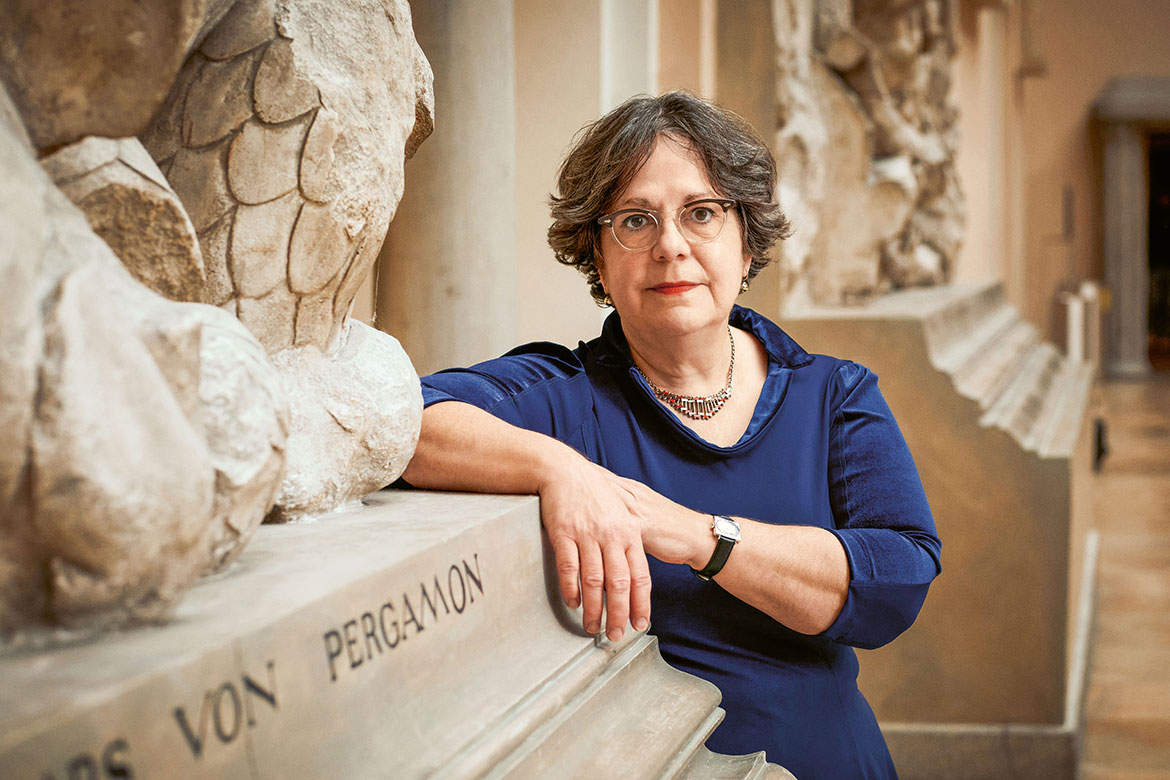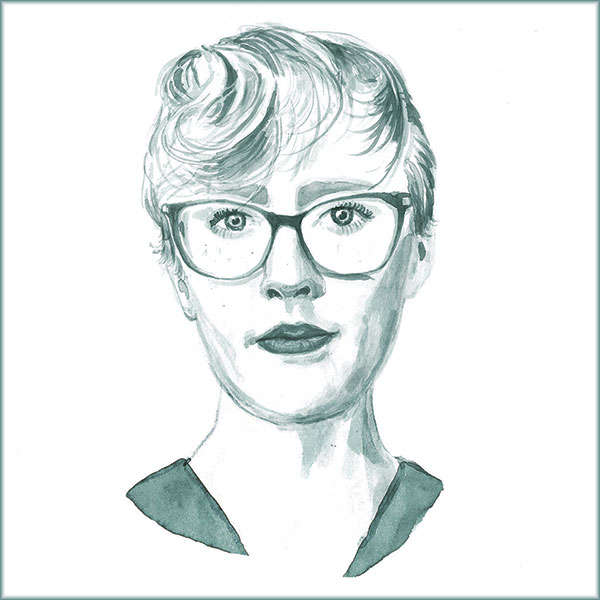PORTRAIT
Culture, cooking and the feminist gaze
Elisabeth Bronfen is a professor of English and American Studies who searches for hidden stories in literature, film and art. Her focus is very much on the role of women.

Young, female, Jewish, and asking different questions – Elisabeth Bronfen was very different from what people had been used to in the humanities faculty of the University of Zurich. | Image: Lea Meienberg
Elisabeth Bronfen spends at least an hour in her kitchen every day. That’s how long it takes her to prepare a ‘quick’ meal. And when she cooks for guests – which she loves doing, and often too – she always prepares several courses. That is naturally an even bigger effort. In her kitchen, she also tinkers with recipes until she’s turned them into something fit for a cookbook. In 2016, she published her first collection of recipes under the title ‘Besessen. Meine Kochmemoiren’ (‘Obsessed. My cooking memoirs’). This will soon be followed by ‘Lust auf ...’ (‘A craving for…’), a second cookbook from Bronfen’s kitchen lab in which her recipes are organised according to taste and mood, she says. For example, if you have a desire for something sweet, you can combine this with your current emotional state – such as sadness, boredom or even “It’s cold outside”, and the book will suggest a recipe. And if it’s indeed cold, the recipe will warm your spirits.
Her delight in asking questions, her irrepressible curiosity and her broad spectrum of interests together help Elisabeth Bronfen to determine her research priorities. And she has many of them. In addition to Anglo-American, German and French literature – “the languages that I can speak really well” – she also engages with operas, films, TV series and the visual arts. She also likes interdisciplinary work that is situated “between the written and the visual”.
Another source of inspiration, says Bronfen, is her own family history, which she describes as a “German-Jewish migrant story”. It’s a story that begins in Germany and the USA after the Second World War, when her parents got married, and it revolves around Jewish identity and a life between different cultures. War and its aftermath, trauma and multiculturalism are topics that return time and again in her academic work, as in her book Specters of War. Hollywood’s Engagement with Military Conflict, in which she looks at America’s traumatic war history through the lens of films.
A feminist gaze
Above and beyond this, Bronfen is also always guided by feminism in her work. Whenever she engages with different art forms from this perspective, she is just as concerned with explaining the absence of women as she is with “art by women and female subjectivity in any form, as it is either expressed or not expressed”, she says.
However, Elisabeth Bronfen deals with works by women not only as a scholar, but also in concrete terms as an autodidactic museum curator. She was invited by the Aargau Art Gallery to look through various in-house collections and to make suggestions for an exhibition. The result is ‘A Woman is a Woman is a Woman ... A History of Women Artists’, which is exhibiting works created by both well-known and forgotten women artists from the Modernist era to the 1990s.
Bronfen gave herself the task of “reading this archive anew, and looking at these works through a different lens”. In other words, she did not want to locate any common denominators among this art beyond gender, but rather ask what is actually there, and “what forms of creativity women have demonstrated in the 20th century”. It was only in her next phase of work that she took the biographies of the women artists into account. These were often fractured, difficult life stories. To have included them from the beginning, she said, would have resulted “in a different exhibition. This way, it doesn’t have that heaviness”.
All the same, women’s art is still neither completely unencumbered nor can it be taken for granted. Women today might have the same opportunities as men when it comes to attending art college, “but work by women doesn’t have the same visibility as the work of men, nor the same monetary value”, says Bronfen. According to a study carried out by The Guardian, collectors are simply not willing to pay the same amount for a work if it’s by a woman rather than a man – if they actually know the gender of the artist. When asked why women’s works should be shown, even if they don’t have the same reputation as the works of men, Bronfen replies: “Ultimately, what a society considers to be worthy of attention is a sociological question, as is who draws the line. What determines the value of art is very subjective”.
As a young academic, Bronfen did not have to endure the same fate as the many women who to this day still find it difficult to rise to the top in the worlds of art and academia. When she was appointed to the University of Zurich in 1993, it was seen in the media as a mini-revolution. She was young, female, Jewish, German and American; she was asking different questions, she had a different way of thinking – partly derived from feminist cultural theory – and, to top it all, she was good at dealing with the media. Back then, she recalls, she was very different from what people had been used to in the humanities faculty of the University of Zurich.
Her appointment had been a surprise to her, and her daily work with her colleagues was difficult. “It was a constant struggle to be included in faculty decisions, to create reading lists with female authors, and to establish new, theoretical ideas such as deconstruction, gender studies and psychoanalytical literary and cultural theory”, she says.
Undeterred and ‘colourful’
Has the struggle been worth it? Has anything really changed at the University of Zurich in the well-nigh thirty years since she was appointed? “The staff have changed. The proportion of women lecturers is significantly higher today than it was in the 1990s. But one thing still hasn’t been accepted unquestioningly in Zurich: gender studies. It is still not regarded as completely normal to treat it as a discipline like any other”, she says. “When students ask me why they should study women, I tell them that these women have not been on the scene for long, and that this can change again very quickly. That’s why we have to keep drawing attention to women, and we have to do so until they are an integral part of the scholarly canon”.
Despite such adversity, Bronfen has unflinchingly pursued her path as a ‘colourful’ scholar, as she describes herself. She publishes very regularly, gives lectures, and besides her work at the university, she is a popular visiting professor at various other universities as well as a highly regarded voice in the media – for matters pertaining to cultural studies or even about cooking.




